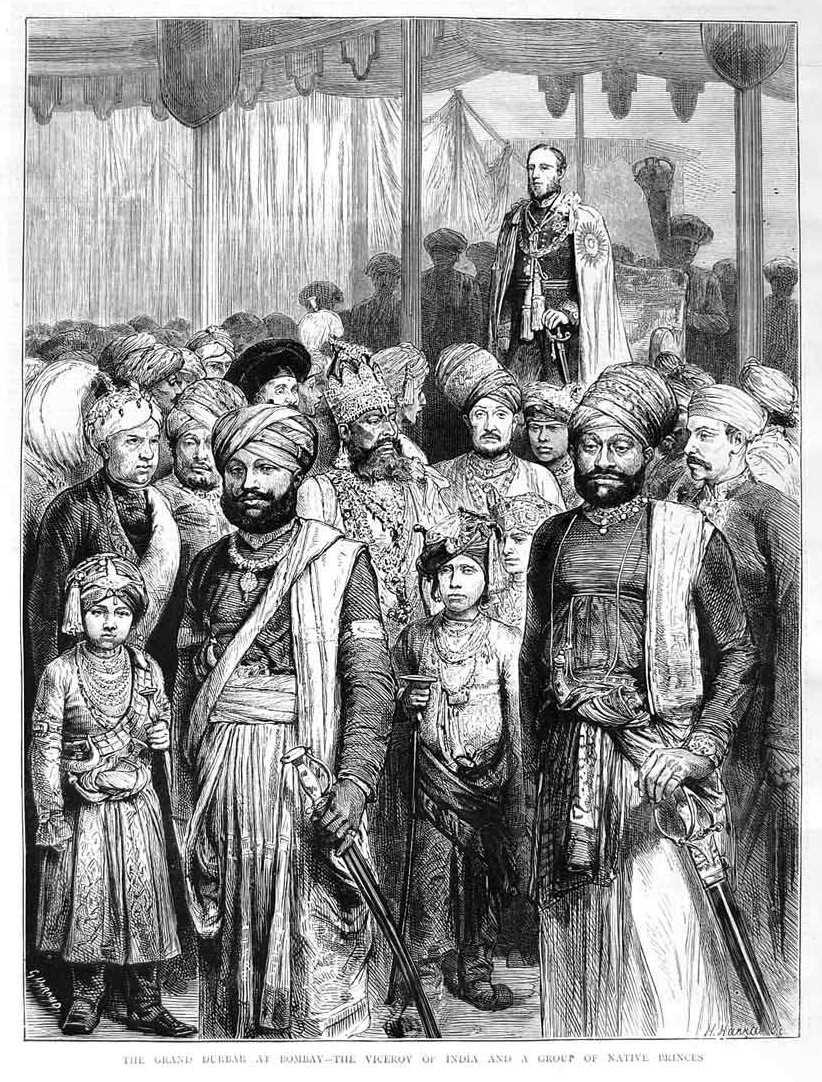FWP:
The nature of this verse as the first in a kind of four-verse verse-set is discussed in {234,8}, the verse that introduces it.
Since we are approaching the end of the divan, this seemed a good place to include some of Ghalib's typically bleak, but also typically witty, thoughts about his relationships with princely patrons. In the letters quoted above, Ghalib humorously complains that every patron whom he praises seems to die of the shock pretty quickly. Apparently his praise had the same effect on Tajammul Husain Khan as well, who seems to have died (if Mihr's date is correct) right around the time this ghazal was composed.
What Nazm criticizes-- and therefore Bekhud Mohani makes a point of praising-- is the fact that diyā hai at the beginning of the first line, and banā hai at the beginning of the second line, look to be grammatically parallel, but they're quite different. The first line has the implied subject 'He' or 'God', though we can't possibly tell that except by later guesswork; the subject can indeed be omitted in Urdu, but this should only be done where it's readily apparent what the subject is. This line doesn't follow that practice, since in the second line there's no reference to 'God'.
The first line also offers us the confusing use -- its antecedent might be the unspecified subject of the first clause, or the ḳhalq , or something or somebody else entirely. Then the banā hai at the beginning of the second line (for more on this see {234,11}) is the present perfect of ban'nā and has 'enjoyment' [ʿaish] as its subject, so it's entirely unlike diyā hai in the first line; their seeming parallelism proves to be an illusion. In short, this is trying to be a mushairah verse-- but it can only be said to succeed at all if 'Tajammul Husain Khan' can work as a sort of 'punch-word' to activate all the earlier confusion and misdirection. And how can it? Even in Ghalib's own day, his was not a name to conjure with.
The verse is thus awkwardly structured and lumpy,
so that we have to struggle to resolve it. And then what is our
reward? Basically, nothing at all. We merely learn the hyperbolic,
labored, and unmotivated information that God has created all the
enjoyment and luxury in the world for one of Ghalib's patrons, and has given bits of it to
others only so as to protect that one fortunate person from the 'evil eye'
effects of their envy. Once we've learned that, there doesn't seem to
be anything else going on in the verse. If we made a prose paraphrase,
what would we lose?

Ghalib:
[1861, to Taftah:] Anyone praised by me, doesn't survive. [The Navabs of Avadh] Nasir ud-Din Haidar and Amjad Ali Shah passed away after one ode apiece. Vajid Ali Shah stood up to three odes, then he couldn't take it any longer. Anyone in praise of whom I've composed ten or twenty odes, has arrived even beyond Nonbeing [ʿadam se bhī pare].
==Urdu text: Khaliq Anjum vol. 1, p. 368